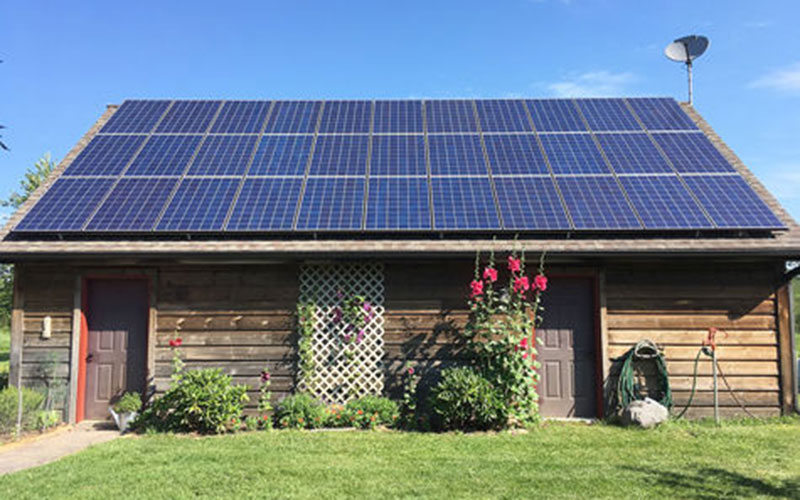Net metering is a billing policy that enables customers who generate electricity from solar energy to receive a bill credit for the excess energy they add to the grid. This arrangement allows residential and business customers to generate their own electricity, reduce carbon emissions, and provide substantial economic benefits to their communities.
In Wisconsin, net metering varies widely by utility. For example, some utilities use a monthly billing period for netting, while others use an annual period. Some utilities cap systems to 20 kilowatts (kW) for net metering purposes, while others have a 100 kW or 300 kW cap. Due to statewide inconsistencies across utilities, there are opportunities for policy improvements to provide clarity and better reflect the value of solar.
Solar customers and clean energy supporters have an opportunity to submit comments to the Public Service Commission in favor of protecting and improving net metering in Wisconsin. The Commission has asked for remarks on four key questions and shared a 60-page memo from the Regulatory Assistance Project describing net metering policy issues, changes to net metering in other states, and several other aspects for consideration. Comments must be received by 5:00 p.m. on Tuesday, March 22, 2022.
The PSC’s net metering questions (paraphrased):
- Do current net metering tariffs appropriately balance the ratemaking principles?
- Do current net metering tariffs align with the Commission’s mission and state energy policy goals?
- How could net metering tariffs better align with ratemaking principles and policy goals?
- What, if any, further action should the Commission take to review and reform net metering tariffs?
While RENEW is enthusiastic that the Commission is exploring ways to improve net metering, nuances in the memo could undercut rather than accelerate solar growth in Wisconsin. It is critical that any effort to rework net metering in Wisconsin protects the positive features of the current system and carefully evaluates the risks and benefits of any changes. As evidenced by the PSC’s 2021 PV potential study, Wisconsin can expand customer-owned solar, especially with the correct net metering policies. However, opening up the door to changes too quickly may put the current benefits of net metering at risk.
We encourage you to submit comments and share what’s working, what’s not, and why supporting a robust net metering policy is critical for Wisconsin’s clean energy future.
Thank you for your support!

